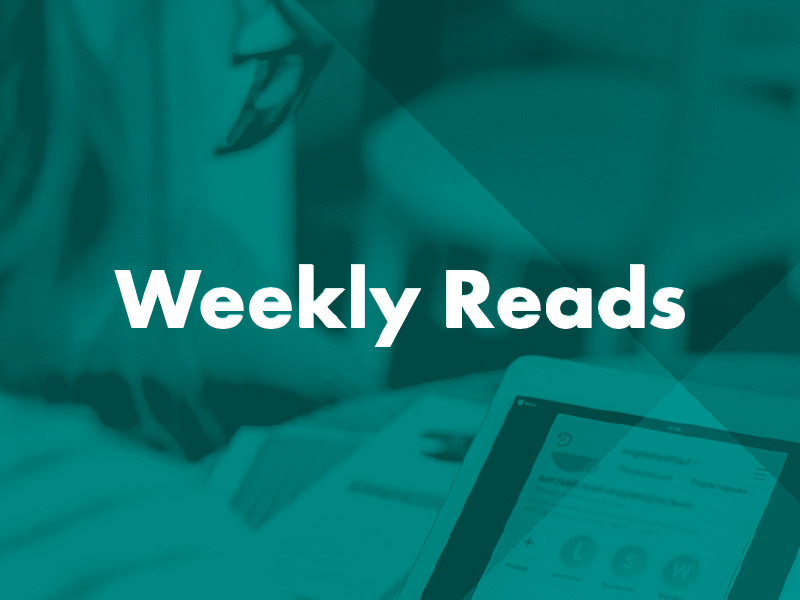Weekly Reads—October 6, 2023

Enjoy PEAK’s weekly roundup of timely insights from the grantmaking community and beyond.
“At a time when right wing philanthropy is pouring money into organizations hell-bent on destroying our most basic rights, progressive and mainstream donors must do more than hold the line. Instead, they must counter these attacks with renewed vigor and increased resources. … First, philanthropy must immediately halt its recent great retrenchment on racial-justice funding. … Second, we implore foundations not to remove language signaling a commitment to racial justice or specific communities of color from their websites, grant applications, and grant programming.” [more]
Stacey Abrams and Julián Castro, Marguerite Casey Foundation Board of Trustees, for The Chronicle of Philanthropy
“Shifting away from this dominant, exclusive, heroic understanding of leadership is necessary for society to meaningfully advance justice and equity. The urgent need for this shift is coming into sharper focus at RWJF as we look more closely at the imperative to dismantle structural racism as a serious barrier to health and wellbeing.” [more]
Deborah Bae, Robert Wood Johnson Foundation
“Following frustrating pandemic-related delays, the IRS released around a million Form 990 files in May 2023, providing crucial data to offer a more complete picture of nonprofit compensation. Our data and technology teams at Candid acted quickly to process this massive influx of data to make it available in our offerings—like the report—that the sector relies on. This allowed us to produce the most complete analysis of fiscal year 2021 and illuminate the continued impact that 2020 had on the sector.” [more]
Parshya Kavoosi, Candid
The David and Lucile Packard Foundation, in collaboration with Informing Change, has updated its Data Ethics Guidebook, which was originally released in 2010. “We know the ways in which harm can manifest in research and evaluation has incredible nuance. As we shift our paradigm from ‘doing no harm’ to ‘adding value and doing with care,’ we are proud to see that this work is constantly evolving to reduce that harm and lift up best practices.” Learn more and download the guidebook and a tool kit.

